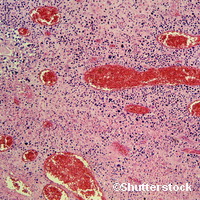Cancer: new study focuses on tackling metastatic tumours
New research from a team of international researchers could lead to the development of alternative anti-cancer treatments for cells resistant to conventional chemotherapy. The team, hailing from Australia, France and the United Kingdom, worked on the treatment after discovering a new molecule with novel anti-cancer and anti-metastatic properties. Writing in the journal Cancer Research, the team explains how this new molecule targets not only the multiplication of cells, but also their mobility. This means it could prevent the formation of metastases, tumours that have been formed from cells that have spread from the primary tumour. Unfortunately resistant tumours considerably limit the efficacy of chemotherapy treatments, and metastases are the most frequent cause of death among patients suffering from cancer. This latest study was 10 years in the making, with the scientists setting out to discover and characterise a new anti-cancer and anti-metastatic molecule. They used a robotic high-throughput screening platform, which saw nearly 30 000 molecules get tested before they found Liminib (or Pyr1), a molecule that exhibited the sought-after activity on tumorous cells. Liminib is an inhibitor of LIM Kinase (LIMK), and the first LIMK inhibitor discovered that exhibits anti-cancer properties. Over-expressed in invasive carcinoma (malignant epithelial or glandular tumours), LIMK represents a relevant therapeutic target. This kinase is known to regulate the dynamic of the internal skeleton of the cell, constituted of a network of fibres, including filaments of actin and microtubules that allow the cells to move and multiply, two properties actively used by cancerous cells. The Liminib molecule blocks the mobility of the cells by disorganising the cytoskeleton of actin and also brings about stabilisation of the microtubular network, thereby preventing the cells from multiplying. The mechanism is different to that of the drugs currently used in chemotherapy, which have numerous undesirable side effects. The team's experiments in vitro show that Liminib is toxic to several cancerous cell lines, including cell lines resistant to chemotherapy. The hope now is that these promising results will lead to the development of alternative treatments for cancer patients for whom chemotherapy is no longer an option.For more information, please visit:Centre national de la recherche scientifique (CNRS), Délégation Paris Michel-Ange: http://www.cnrs.fr/paris-michel-ange/?lang=fr
Countries
Australia, France, United Kingdom

